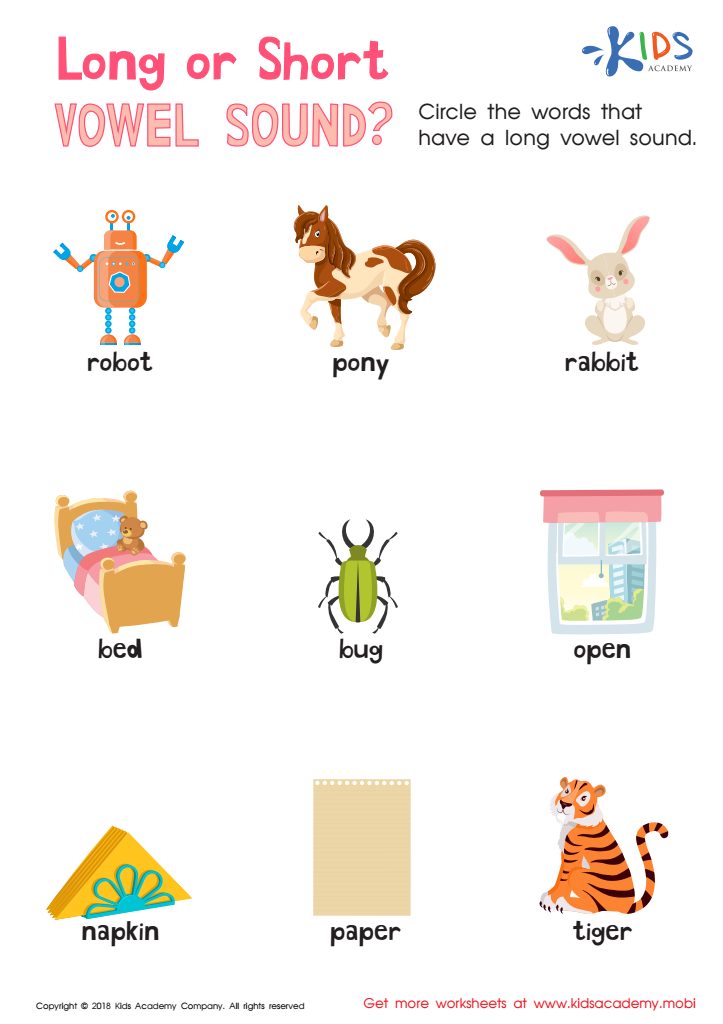Distinguishing long/short vowels Worksheets for Kids
1 filtered results
-
From - To


Long or Short Vowel Sound? Worksheet
Question/Answer
What are some effective activities to train students’ Distinguishing long/short vowels skill when teaching them about Long And Short Vowel?
To train students in distinguishing long/short vowels, use activities like vowel sorting (sorting words by vowel sound), minimal pair bingo (using words that differ only by vowel length), fill-in-the-blank sentences focusing on vowel sounds, interactive vowel charts (to practice vowel sounds), and matching games (matching words with their corresponding long or short vowel sounds).
How to test a Grade 2 student’s Distinguishing long/short vowels skills?
To test a Grade 2 student's ability to distinguish long/short vowels, use a mix of oral and written exercises. For oral tests, say words aloud and have the student identify as long or short vowel sounds. For written tests, provide words with mixed vowel sounds and ask students to classify them into long or short vowels.
How does the mastery of the Distinguishing long/short vowels skill affect a student's performance at an early age?
Mastery of distinguishing long/short vowels at an early age significantly boosts a student's reading and spelling abilities. It enhances phonemic awareness, a critical component of early literacy skills, allowing students to decode words more accurately and fluently. This foundational skill lays the groundwork for future reading success and overall language development, contributing to increased confidence and academic performance.
 Assign to the classroom
Assign to the classroom












